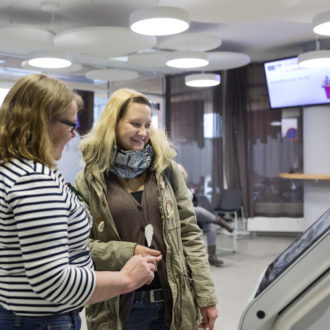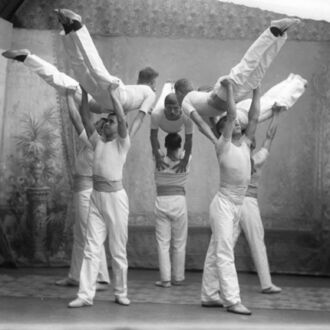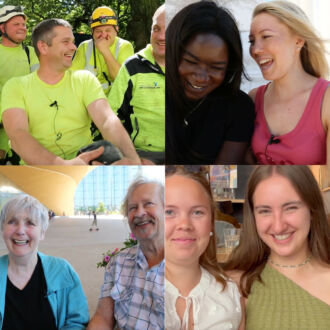The idea of Finland’s two-year basic-income trial is to test whether people are motivated to accept work when extra income does not reduce the social benefits received.
I won the “lottery” organised by the Social Insurance Institution of Finland [often called by its Finnish abbreviation, Kela]. In other words, I was selected to participate in the basic-income experiment. I am one of the few freelancers of my kind – those who alternate between short job stints and periods of unemployment – to be given this opportunity.
The purpose of the experiment is to simplify social security and eliminate unemployment traps, situations in which people cannot accept work for fear of losing their benefits. In the experiment, 2,000 adults are being paid a basic income of 560 euros per month for two years, without any conditions attached. Participants were selected at random from among unemployed people between the ages of 25 and 58 who were recipients of basic unemployment benefits – labour market subsidies or basic unemployment allowances – in November 2016.
The launch of the basic-income experiment in January 2017 was noted all over the world, and many foreign newspapers covered it. To date, I have been interviewed by the BBC, Rai Uno, Tageszeitung and several others.
The most common question I have been asked has been, “How has the basic-income experiment changed your life?”
The simple answer is: financially, it has not. The international press seems surprised to learn that Finland already has a system that provides basic financial security to citizens in various life situations. This is not the case in most parts of the world.
Just say yes
However, for me, being included in this experiment has had very positive psychological effects. I much prefer receiving basic income, rather than dealing with the old system and filling in its complicated forms.
Earlier, I didn’t accept all small jobs, for fear of losing my benefits and having to reapply for them. Because of the bureaucracy, it was not financially worthwhile to accept all those tiny jobs. I feel much more secure now that short-term jobs no longer reduce my benefits or delay their payment.
Thanks to the experiment, I have been able to attend events to promote my books, for example. Fees from such events are often very low. Previously, it made no sense to attend library or school seminars. The experiment has lowered my tax rate considerably. Now I say yes to all invitations.
At the beginning of 2017, I received a grant from the Finnish Cultural Foundation to finalise a non-fiction book, which was published in the spring of 2017. I am currently working on new book projects, but so far I have not received any new grants. I’ve submitted a few articles to publishers, but I can’t invoice them until the articles have been published. In addition, I have sent out dozens of applications in the communications and journalism sector, but haven’t been invited to any interviews so far.
A basic income alone is not enough to live on. My living expenses total nearly 2,000 euros per month. That’s the amount I need to earn regularly through writing. Usually, an unemployed person can earn 300 euros without losing any unemployment benefits. Once that limit is reached, the take-home pay is 50 percent of the additional income.
Applying for the adjusted unemployment benefit requires that the applicant reports each and every wage received, which can delay the payment of benefits due to long processing times.
In the new arrangement, no reporting is required. I can focus on writing and job searches. It feels like the basic income gives you increased freedom and makes society more equal.
By Tuomas Muraja, ThisisFINLAND Magazine 2018







